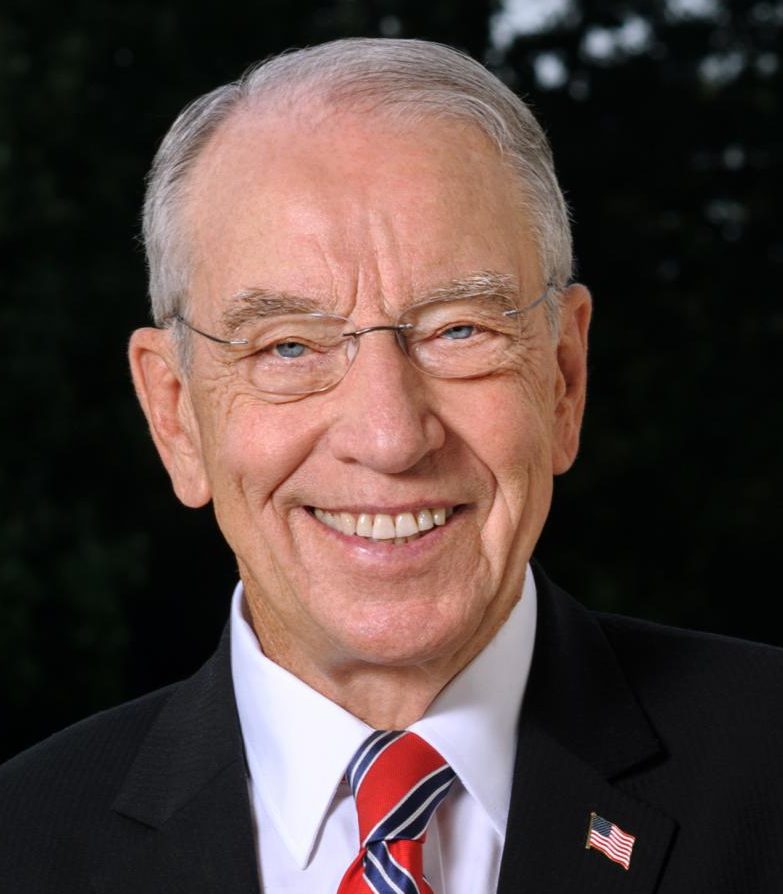Q: What is the National Law Enforcement Officers Memorial and Museum?
A: Located in the nation’s capital, this memorial honors law enforcement officers across the country who have lost their lives in the line of duty, working to protect the safety of fellow citizens in their local communities. The memorial observed its 30th year this October and continued its annual recognition of fallen peace officers in federal, state and local law enforcement who made the ultimate sacrifice. I encourage Iowans who visit the nation’s capital to add this memorial to your itinerary. The memorial is open 365 days a year with no entrance fee. The curved walls of the memorial feature the names of 22,611 fallen heroes who have died in the line of duty throughout U.S. history, including the 72 fallen officers who died in the 9/11 terrorist attacks. For loved ones left behind, the loss is immeasurable. Having the names of these fallen heroes permanently inscribed into the marble walls gives solemn tribute to their sacrifice and memorializes their bravery, honor and courage for generations to come.
In recent years, calls to defund the police have triggered a national conversation about law enforcement and community policing. Soaring crime rates in cities across America have underscored the perils of defunding police. Through my legislative and oversight work in the U.S. Senate, I’ve led criminal justice reform bills and supported efforts to strengthen accountability and improve policing. I’m proud to back the blue and join in solidarity with Iowans to pay tribute to our fallen heroes. This year, the names of 394 law enforcement heroes were added to the memorial and will adorn the Wall of Fallen Officers in the museum for the coming year. Closer to home, we mourn the tragic deaths of two Iowa State Troopers. Earlier this year, Iowa State Patrol Sgt. Jim Smith was killed in a deadly standoff in Grundy Center and in October, Iowa State Patrolman Ted L. Benda died from injuries sustained in a car accident. According to the Iowa Department of Public Safety, 12 Iowa State Troopers in history have been killed in the line of duty.
Q: Which policing bills are heading soon to the president’s desk?
A: For nearly two years throughout the pandemic, our first responders and local law enforcement officers have answered the call to serve and protect in these unprecedented times. As former chairman and current ranking member of the Senate Judiciary Committee, I helped steer three bipartisan law enforcement bills through the Senate earlier this year. The House of Representatives this week passed these bills, clearing another hurdle for the policing measures to become the law of the land. These legislative efforts will improve support for our men and women in uniform who put on the badge to serve and protect around the clock, 365 days a year. The Protecting America’s First Responders Act recognizes the unique hardship of officers who are permanently unable to secure gainful employment following a catastrophic injury in the line of duty. My bill would ensure they remain eligible for federal benefits. I introduced this bill because the public ought to have the backs of those who put their lives on the line to save and protect the members of their local communities. In addition, it empowers the U.S. Justice Department to more efficiently obtain records needed to evaluate disability claims so law enforcement officers aren’t left hanging with uncertainty. The Jaime Zapata and Victor Avila Federal Officers and Employees Protection Act clarifies that federal officers and employees serving our country abroad, such as border patrol or drug enforcement officers, are protected by the long arm of U.S. law. For example, if they are attacked or experience criminal violence while overseas, such crimes may be tried in a U.S. court of law. Finally, access to mental and behavioral health services are important for Americans, particularly those in high-stress, high-risk jobs. Professionals in our law enforcement community are called to respond to dangerous situations that place a big burden on the shoulders of our men and women in blue. My bipartisan bill the Confidentiality Opportunities for Peer Support (COPS) Counseling Act recognizes the mental stresses of their work and encourages the adoption of peer counseling programs. In addition, our legislation provides privacy protections for federal officers who participate. At my 99 county meetings across Iowa, local law enforcement officers regularly attend my town meetings and Q&As at local schools, service clubs and factory floors. These men and women are part of the fabric of their local community and help keep our communities safe places to raise a family, operate a business and enjoy peace and prosperity.
















